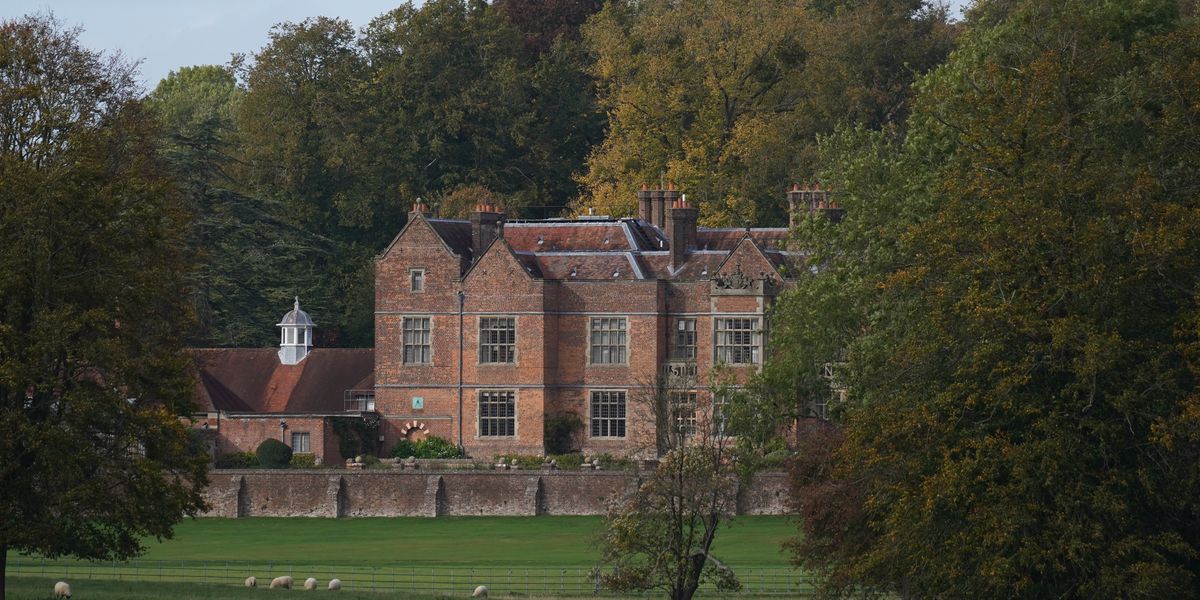Reckless Driving Incident at Chequers: A Cautionary Tale
In a shocking incident that has captured public attention, Matthew Wootten, a 44-year-old man, has been sentenced to 32 months in prison after deliberately crashing his vehicle into the gates of Chequers, the official country residence of the British Prime Minister. This reckless act not only caused significant property damage but also raised serious concerns about public safety and the consequences of driving under the influence of alcohol.
The Incident
On June 25, 2023, Wootten was driving along Missenden Road in Aylesbury when he made a fateful decision. Instead of following the natural curve of the road, he intentionally steered his vehicle towards Victory Gate, the entrance to the Chequers estate. Eyewitness accounts and CCTV footage revealed that he accelerated towards the gates, showing no intention of slowing down. The impact was catastrophic, resulting in over £38,000 worth of damage to the historic oak gates, which have stood for 80 years.
Upon arrival at the scene, police officers discovered Wootten’s vehicle and several cans of alcohol inside. A breathalyzer test revealed that he was nearly three times over the legal drink-drive limit, with a blood alcohol concentration of 221 milligrams per 100 milliliters of blood, far exceeding the legal limit of 80 milligrams. This alarming level of intoxication played a significant role in his reckless behavior that day.
Legal Consequences
Wootten faced multiple charges, including dangerous driving, damaging property recklessly, and driving a motor vehicle while over the legal alcohol limit. He ultimately pleaded guilty to these charges, acknowledging the severity of his actions. At Reading Crown Court, he was sentenced to 32 months in prison and received a 40-month disqualification from driving.
Celia Mardon, Senior Crown Prosecutor with CPS Thames and Chiltern, emphasized the gravity of Wootten’s actions. She stated, "CCTV footage showed that Wootten intentionally drove at speed towards the gates of the Chequers estate. The strength of this evidence, along with a significantly high alcohol blood reading, gave him little choice but to admit his guilt to the charges we authorized against him." Mardon further noted the potential danger Wootten posed to others with his reckless driving.
The Significance of Chequers
Chequers, located near the village of Ellesborough in Buckinghamshire, has served as the country residence for British Prime Ministers since 1921. The estate was gifted to the nation by Conservative minister Sir Arthur Lee and his American heiress wife, Ruth, with the intention of providing a peaceful retreat for the country’s leaders. A stained-glass window in the estate reads: "This house of peace and ancient memories was given to England as a thank-offering for her deliverance in the great war of 1914–1918 as a place of rest and recreation for her Prime Ministers for ever."
The historical significance of Chequers adds another layer of gravity to Wootten’s actions. By targeting such a prominent and symbolic location, he not only caused physical damage but also disrespected a site that holds deep national importance.
A Cautionary Tale
This incident serves as a stark reminder of the dangers of driving under the influence of alcohol. Wootten’s reckless behavior not only endangered his own life but also had the potential to harm others. The legal repercussions he now faces highlight the serious consequences of such actions, reinforcing the message that driving while intoxicated is a crime that will not be tolerated.
As society continues to grapple with issues related to alcohol consumption and road safety, this case underscores the importance of responsible behavior behind the wheel. It is a cautionary tale that calls for greater awareness and accountability, reminding us all of the potential consequences of our choices.
In conclusion, the incident at Chequers is not just a story of reckless driving; it is a narrative that intertwines personal responsibility, public safety, and the historical significance of a national landmark. As Wootten serves his sentence, the hope is that this case will resonate with others, encouraging a culture of safety and respect on the roads.
